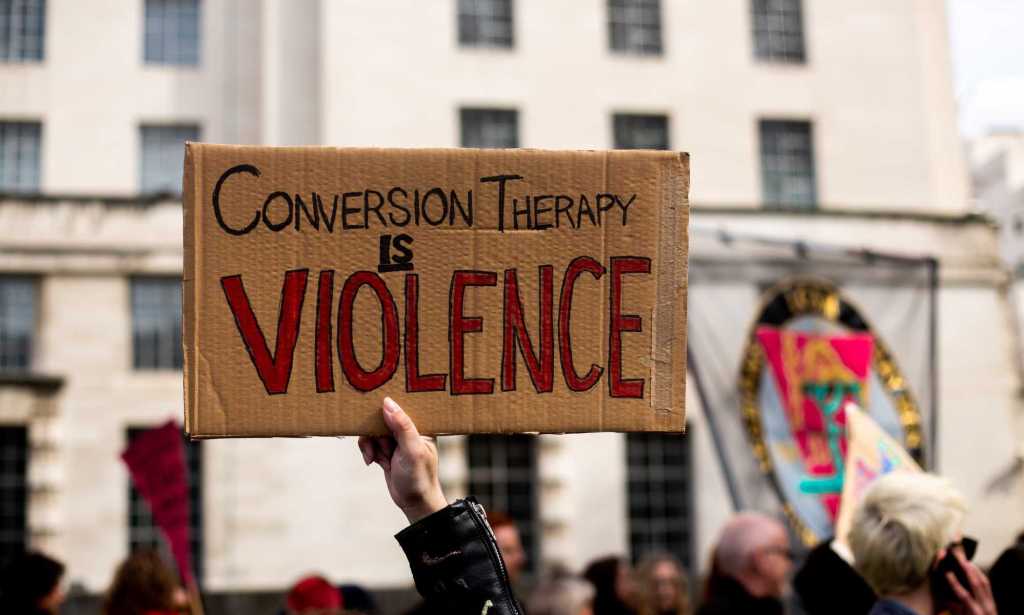Parliament to Finally Debate Ban on Conversion Therapy, Driven by LGBTQ+ Advocates
Conversion therapy, also known as reparative therapy, is a highly controversial practice that aims to change an individual’s sexual orientation or gender identity. It has long been condemned by LGBTQ+ advocates and mental health professionals for its harmful effects on individuals subjected to it. Finally, after years of campaigning and advocacy, the Parliament is set to debate a ban on conversion therapy, thanks to the tireless efforts of LGBTQ+ activists.
Conversion therapy encompasses a range of practices, including counseling, psychotherapy, and even religious rituals, all with the intention of altering a person’s sexual orientation or gender identity. It is important to note that major medical and psychiatric associations worldwide have discredited and denounced conversion therapy as ineffective, unethical, and potentially detrimental to an individual’s mental health.
The upcoming debate in Parliament is a significant step towards protecting LGBTQ+ individuals from the harmful effects of conversion therapy. Advocates argue that such practices perpetuate stigma, discrimination, and prejudice against the LGBTQ+ community, leading to profound psychological distress and an increased risk of mental health issues. Many individuals who have undergone conversion therapy report experiencing anxiety, depression, and even suicidal thoughts.
Several countries have already taken steps to ban conversion therapy. Malta became the first country in Europe to outlaw the practice in 2016, followed by Germany in 2020. Similar bans exist in parts of Canada, Australia, and some U.S. states. The progress made in these nations serves as a beacon of hope for LGBTQ+ activists in the UK who have been fighting for a ban for years.
One of the main concerns surrounding conversion therapy is the lack of scientific evidence supporting its claims. The notion that sexual orientation or gender identity can be changed is not only unsupported by research but also goes against the core principles of diversity and inclusivity. The World Psychiatric Association, among other professional bodies, has clearly stated that homosexuality is not a mental disorder and should not be treated as such.
Sign up for more LGBTQ+ news and updates at TrueQueer.
Critics of conversion therapy argue that it violates the principles of autonomy and consent. LGBTQ+ individuals should have the right to embrace their identities without fear of coercion or judgment. Additionally, many argue that conversion therapy is rooted in homophobic and transphobic beliefs, perpetuating the harmful notion that being LGBTQ+ is something to be fixed or cured.
The debate in Parliament will provide an opportunity for lawmakers to address these concerns and take a decisive stand against conversion therapy. It is crucial that any legislation enacted is comprehensive and leaves no room for loopholes or exceptions. The ban should cover all forms of conversion therapy, including those performed by religious institutions or disguised as pastoral counseling.
In addition to the ban, it is equally important to ensure that appropriate support services and mental health resources are in place for individuals who have been subjected to conversion therapy. These survivors often face significant trauma and may require specialized care to heal from the harm inflicted upon them.
The upcoming debate is a testament to the power of grassroots activism and the resilience of the LGBTQ+ community. It highlights the progress made in dismantling harmful practices and promoting acceptance and equality. However, it is crucial to remember that the work does not end with the ban. Continued efforts are needed to foster a society that embraces diversity, inclusivity, and respect for all individuals, regardless of their sexual orientation or gender identity.
The long-awaited debate in Parliament on the ban of conversion therapy is a significant step forward for LGBTQ+ advocates in the UK. It represents an opportunity to protect individuals from the harmful effects of this discredited practice and sends a powerful message of acceptance and inclusivity. The ban should be comprehensive, leaving no room for exceptions, and accompanied by appropriate support services for survivors. This debate is not just about legislation; it is about creating a society that values and celebrates diversity in all its forms.
Follow us on Facebook
![]()

